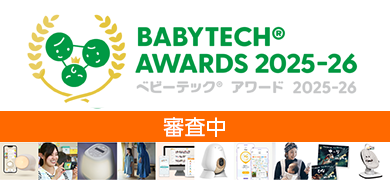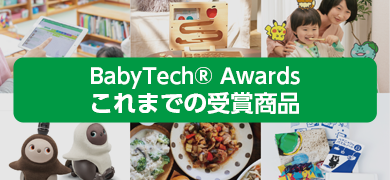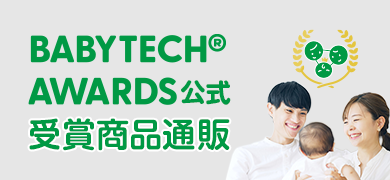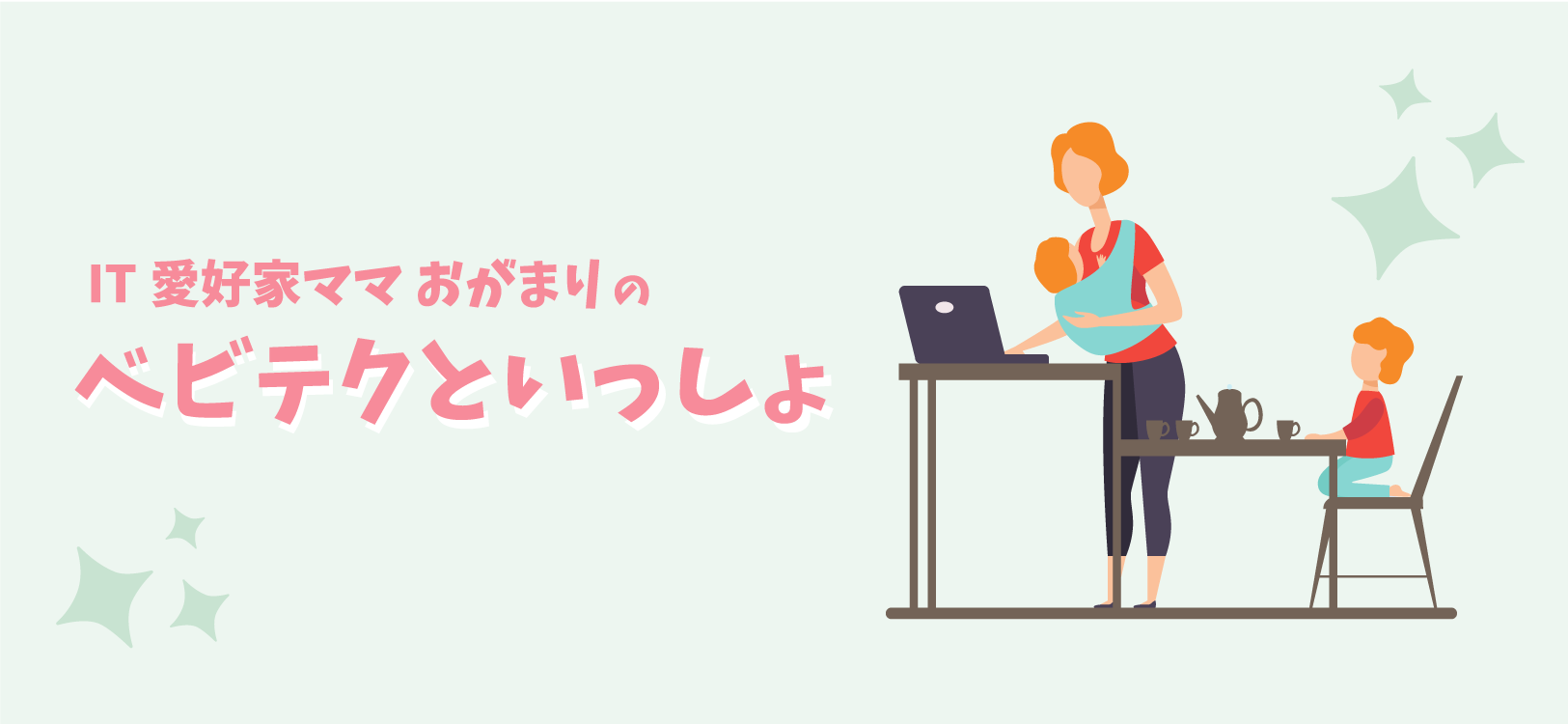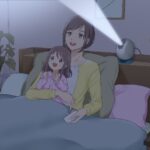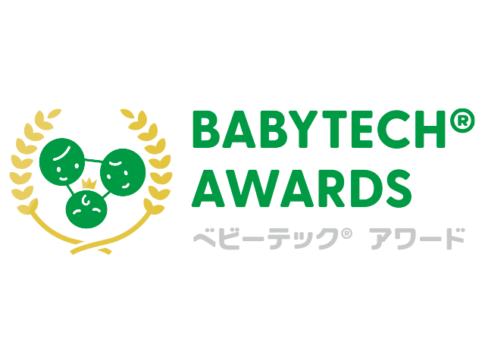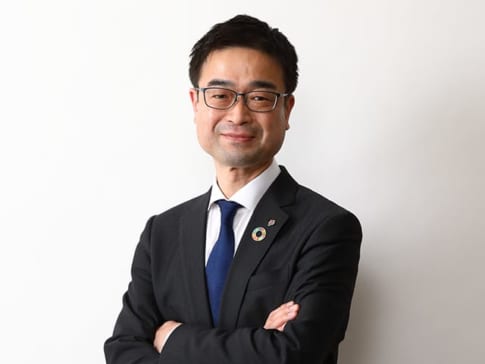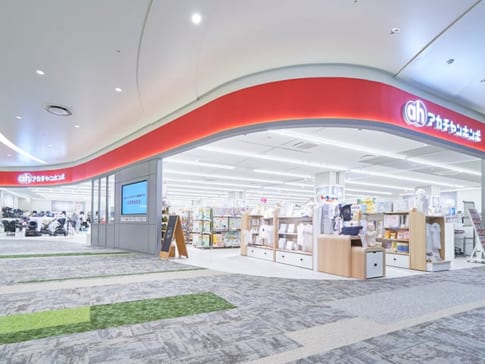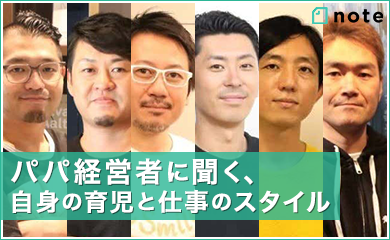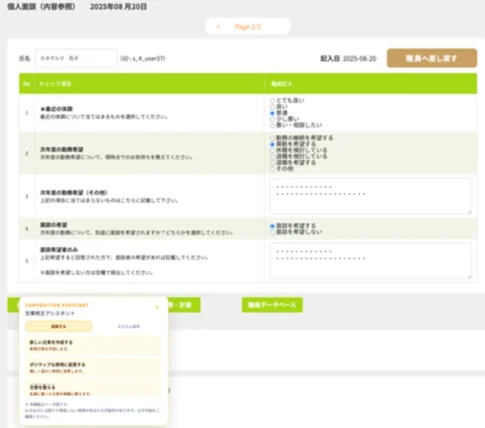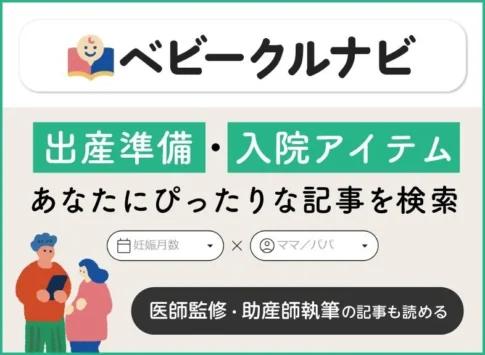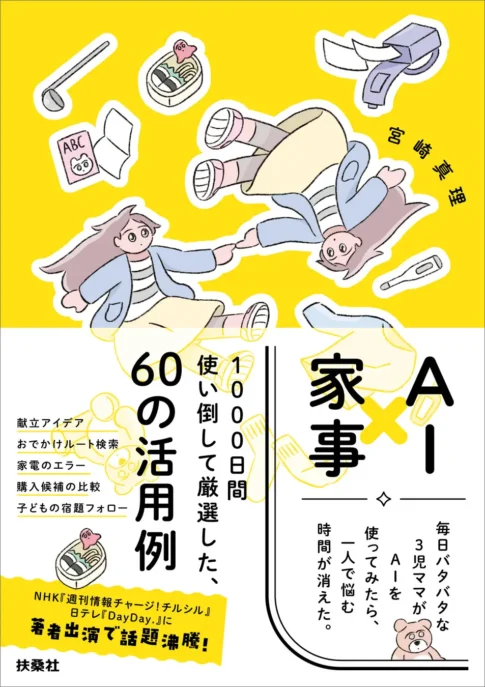- The following is content from the press release -
(MRT), which develops and operates the PTA support service "COCOPiTA "*1 for the approximately 7 million PTA members belonging to the National Council of PTAs of Japan (PTA), and ARIA Co, (hereinafter "ARIA"), which works with the COCOPiTA service, a dialogue project was conducted on the theme of "Healthy Development and Education for Children.
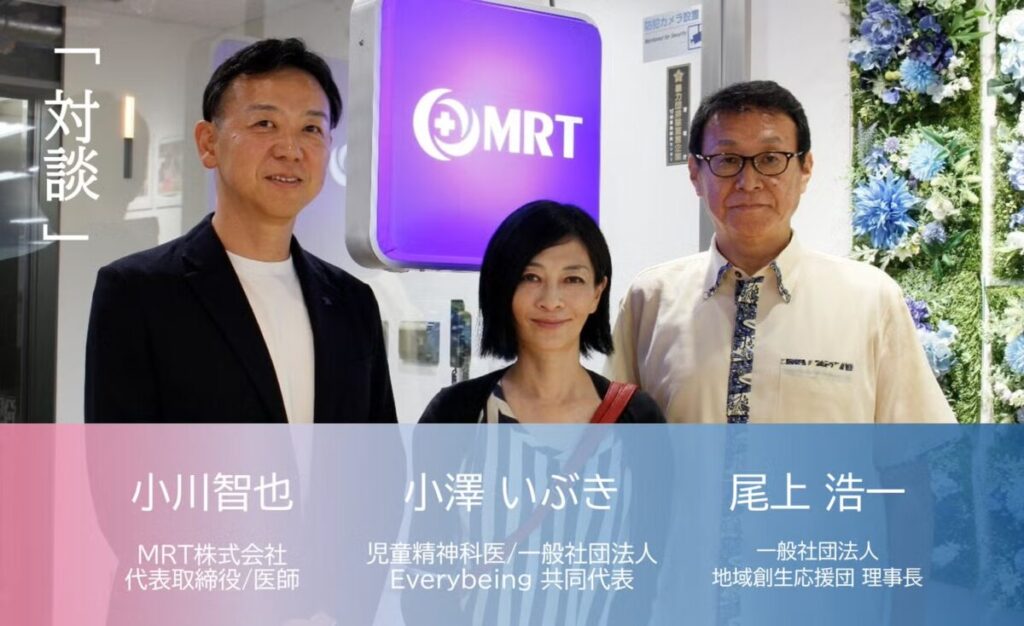
For this project, we wanted to learn in depth about the issues surrounding today's children and the roles that should be played by the community, medical care, education, and complementary businesses. To this end, we invited Mr. Koichi Onoe, former president of the Japan PTA and chairman of the General Incorporated Association, Community Creation Support Group (hereinafter referred to as "Community Creation (hereinafter referred to as "Regional Creation Support Group"), and Dr. Ibuki Ozawa (hereinafter referred to as "Dr. Ozawa"), a child psychiatrist who has been working widely as a child psychiatrist.
The three, including MRT representative Tomoya Ogawa ("Ogawa"), discussed the challenges of children's development and growth today as seen from their respective backgrounds and professional perspectives, the future of healthcare and education, and the role and involvement of the community.
1 "COCOPiTA" (https://onelinavi.com/pta/) is a revolutionary platform that connects parents, teachers, staff, and the community as one. MRT provides 24/7 online medical care and online health consultation services.
First of all, please tell us about your backgrounds.
Mr. Ogami:
Let me begin by discussing the organization of the PTA, of which I was previously president.
If "school education" based on the Courses of Study conducted within the school curriculum is one type of education, then other organized educational opportunities are "social education.
Groups and organizations organized outside of schools, such as PTAs, children's associations, senior citizens' associations, and women's associations, are called "social education-related organizations.
The PTA is an organization that has been working from the perspective of "how can we help children learn and grow better in the community" rather than just "learning something as parents because we have children". We believe that the PTA should be rooted in the community, and that it should involve parents and adults in the community in cooperation with the goal of supporting children's upbringing.
After his term as PTA president expired, he decided that he wanted to provide an environment where not only parents but also general companies could support PTA activities and school education. He promoted activities to connect PTAs and companies, and the organization is now expanding nationwide as the Community Creation Support Group.
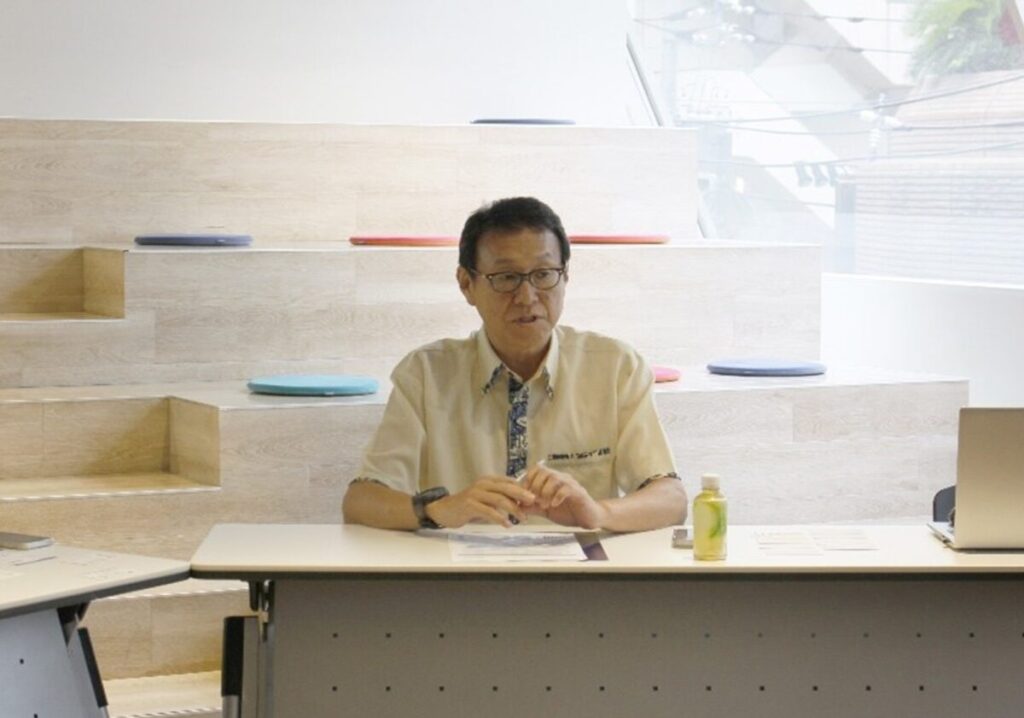
Koichi Onoe
President, General Incorporated Association, Community Creation Support Group
He is also a past president of the National Council of Japan PTA, a member of the 7th and 8th terms of the Central Council for Education of the Ministry of Education, Culture, Sports, Science and Technology, a member of the 2nd and 3rd terms of the Consumer Affairs Agency's Council for the Promotion of Education for Fewer Children, vice chair of the Management Council and president selection committee of Hyogo University of Teacher Education, and director of the Financial Intelligence Association, a specified nonprofit organization.
Dr. Ozawa:
I am a child psychiatrist and a psychologist by profession, and I am involved in children's mental health and wellbeing in Japan and the Middle East through an organization I founded. I am also involved in the creation of a wellbeing environment where children's rights are respected at various levels, from day-to-day activities to policy formulation.
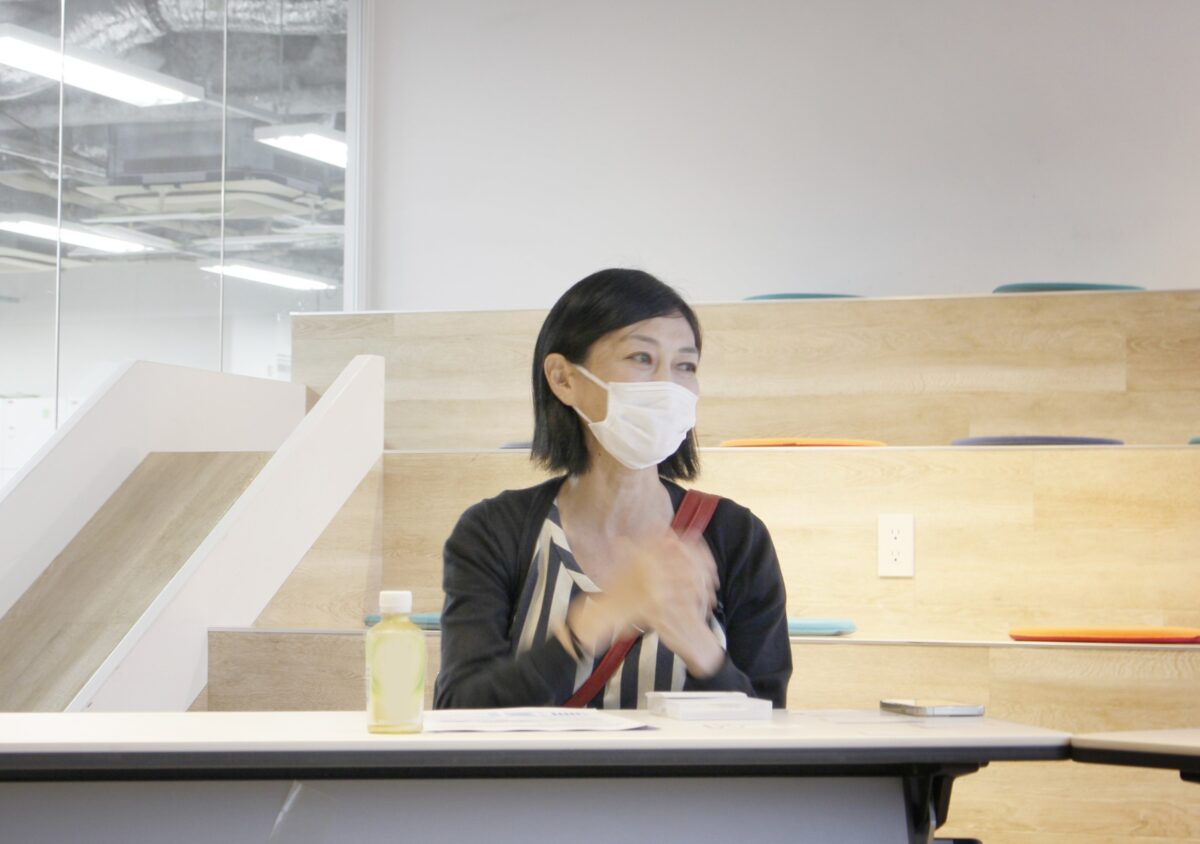
Ibuki Ozawa
Co-Chairman, Everybeing General Incorporated Association
Child Psychiatrist, Specialist in Psychiatry, Designated Mental Health Physician After his experience as a clinical resident and clinical psychiatrist, he trained in child psychiatry at the Tokyo Medical Academy and was involved in the mental care of children at the Tokyo Metropolitan Children's General Medical Center, Child Guidance Center, Mental Health Welfare Center, and other facilities. After that, he worked as a specially-appointed researcher at the Research Center for Advanced Science and Technology at the University of Tokyo before founding the NPO PIECES.
Stream:
I was originally a physician specializing in emergency medicine. Now, as the president of MRT, I am using my experience as a physician to solve issues in the medical field and create an environment where everyone has equal access to medical care through physician recruitment and online medical care, while ensuring safety.
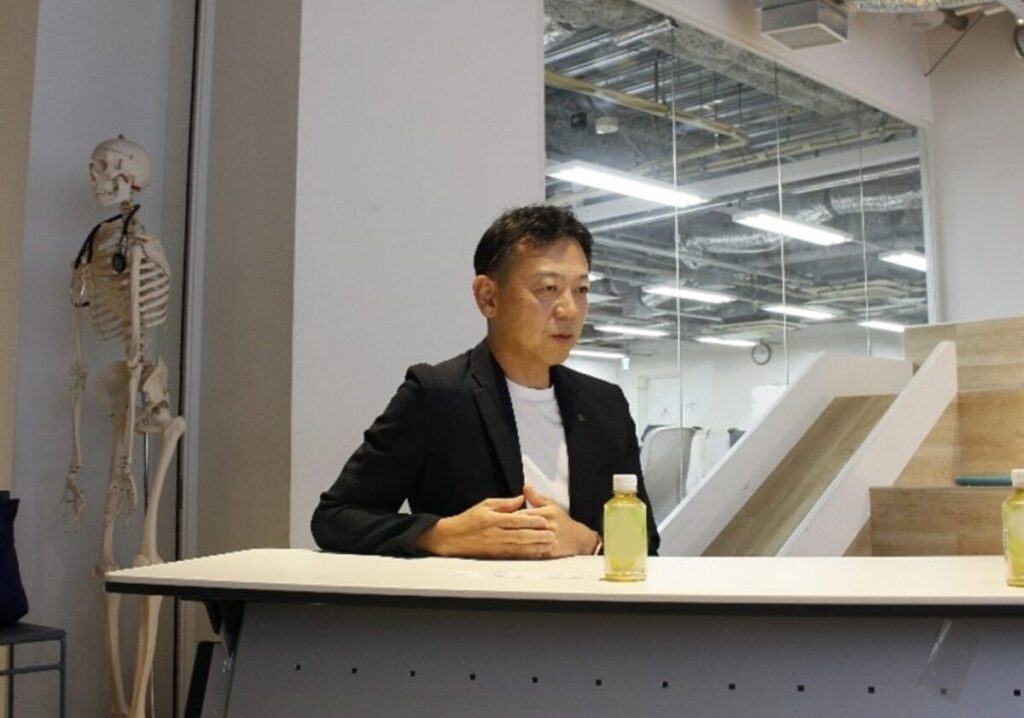
Tomonari Ogawa
Representative Director, MRT Co.
Emergency Medicine Specialist, Japanese Society of Anti-Aging Medicine, MBA
Worked in disaster and emergency medicine at Osaka Senri Emergency Center and Osaka Medical Center Emergency Center. After that, he participated in the management of several clinics before joining MRT Co. Currently, he is engaged in the IT-based medical information platform business at MRT.
Issues of children's healthy development and growth
-What do you feel are the challenges to the healthy development of children from your own perspectives?
Mr. Ogami:
Yes, nowadays, there are more and more opportunities for children to look at tablet PCs and other devices.
There are concerns about the "health effects" of the fact that children as young as 1 or 2 years old, let alone elementary or junior high school students, are beginning to look at tablets. It is said that these effects do not show up immediately, but appear in adulthood, so we believe that it is necessary to take some measures at this stage.
Dr. Ozawa:
Children's care tends to be "confined" to the home, alternative care, and foster care facilities, while daycare centers take care of children and schools provide education. As the saying goes, it takes a village of 100 people to raise one child.
I feel that it is important for caregivers and teachers to be involved as "one of the children's partners" based on the foundation of playing, learning, and growing in the important soil of the community.
Stream:
Speaking from the perspective of medical care, I believe that the universal health insurance system provides an environment in which people throughout Japan can receive medical care fairly, and this is the same for education. However, in some regions, there is a shortage of doctors and people have their own family backgrounds, and I feel that fairness is not ensured even in medical care. I believe that the challenge is how to fill such regional disparities.
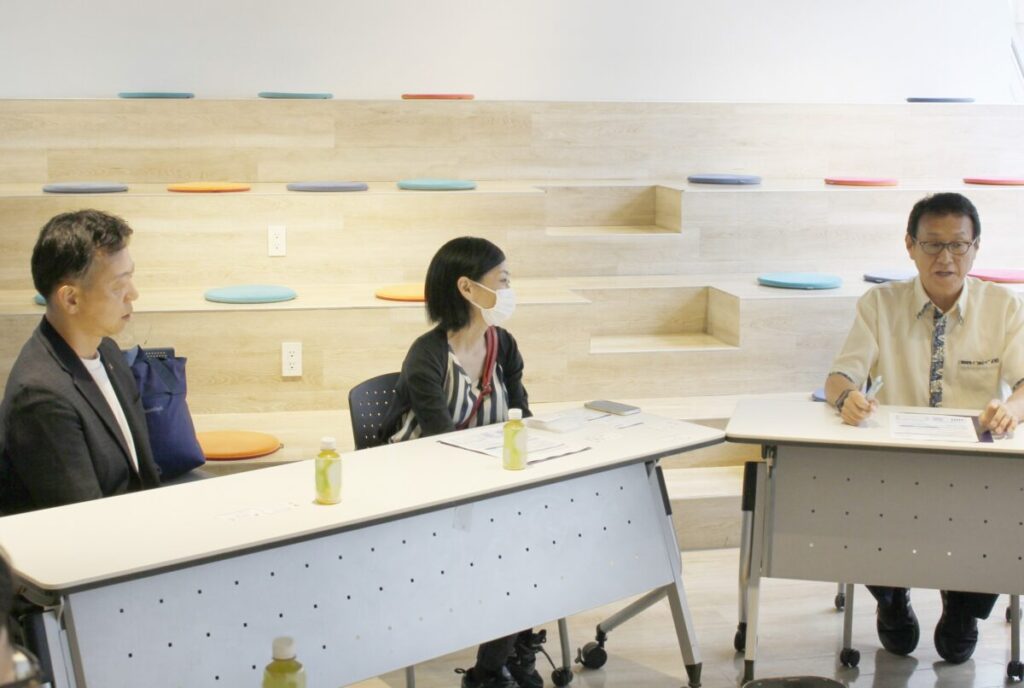
The following are some of the problems that have been reported: - "health hazards caused by increased access to the Internet environment," "fragmentation and closed environments for those involved in the care of children," and "regional and other disparities in medical care and education, which should be fair.
Do you think that "social education" and "social education organizations" as you mentioned at the beginning have changed compared to the past?
Mr. Ogami:
I think so. When the Ministry of Education was organized in 1949, its original purpose was to improve the educational environment.
There were no school lunches, textbooks were paid for, and there was no insurance. The main focus was on activities by the parents to request the government to improve the educational environment.
When the education system began to be established, the government began to provide budgetary support for training sessions and national conventions, as adults themselves needed to learn in order to create a good educational environment. However, the government support ended in 2007, and we entered a phase in which we asked the adults to take action on their own.
From that point on, it is difficult to pay attention to anything other than what is directly related to one's own life, and I think that is how tight society and life has become.
Dr. Ozawa:
We also feel that economic disparities are becoming tighter and tighter, and that it is becoming easier for economic disparities to affect the environment in which children are raised. For example, it is not uncommon for children to need to pay for childcare services. Children need money for various experiences, transportation, and many other things, and under such difficult circumstances, children's lives and options may become limited. Families must be the only ones to carry the physical circumstances of raising children, and without appropriate systems, structures, and support, this situation may become stronger. On the other hand, the convenience of being able to pay for a service and have it completed within the framework of a service may make it difficult to see the soil of the community.
As I listened to you now, I wondered how we can have a renewed awareness that we are also the creators of our community.
When children reach about adolescence, there is some distance between them and their parents. When opportunities to talk with parents decrease, there may be less involvement outside of the confines of the home and the person's own choices in the community.
At such times, the Internet is a place where children can connect. While there are times when they can connect in a positive way, there are also times when they are exposed to biased or inflammatory information that can have a painful effect. I feel that there is a difficulty in knowing what kind of information to get from the Internet and how to utilize it.
The fewer real connections you have, the stronger the influence of the information available in that one connection can be.
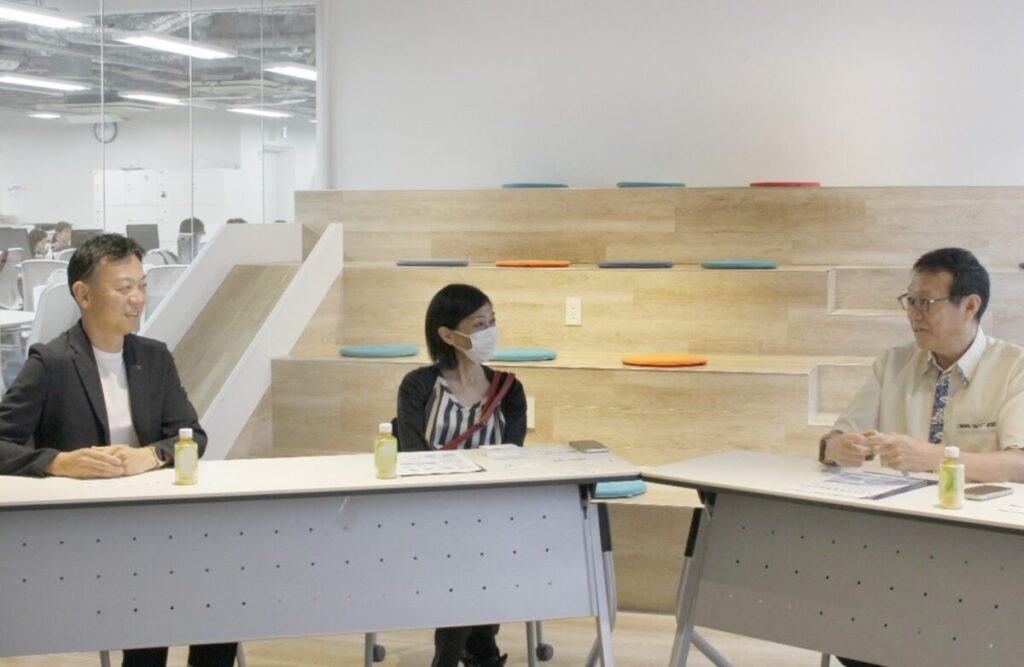
-While a good educational environment has been created, the tightening of social and living conditions has led to a weakening of ties with the local community, and the Internet society is spreading like a substitute for it. Given this background, what are some of the things that we should pay attention to in order to address the issues you have just mentioned?
Dr. Ozawa:
When considering the healthy growth of a child, we feel that the child's own physical and mental condition and circumstances play a major role, but even more so is the influence of the surrounding environment.
For example, the relationship between adults, the mental health of adults, the child's relationship with adults, the culture of the daycare center or school the child attends, the relationship between friends, and the environment such as the culture and natural environment of the community where the child lives.
Children in such an environment,
I'm okay with being here."
It is a feeling that one's voice is being heard, that one's voice is being heard, that one's voice is being heard, and that one is being proactively involved in something,
To be able to feel, "I'll be okay today, tomorrow, and beyond, and I think I'm going to be okay in this community."
I feel that the accumulation of such realizations becomes a very important essence for the child's mind.
On the other hand, UNICEF also surveyed children and found that "Internet environment" was one of the factors affecting them. Therefore, we must also look at the digital environment.
The Internet has become an inseparable part of the modern world, and it is very important to think about how to create wellbeing for children. At the same time, as children spend more time on smartphones and the Internet, they are at increased risk of accessing inappropriate information, such as health hazards, biased, inflammatory, and discriminatory information, which Ms. Onoe mentioned as an issue.
On the other hand, because the Internet is an important "place of connection" for children, it is a challenge for adults to consider how to create a safe and positive environment for children as their own responsibility, and how to create such an environment together with children's voices as well.
We adults need to prepare the digital environment. When building a platform, we need to focus on "how to realize safe interactions with children without compromising their power and independence, while aiming for their rights.
Stream:
Yes, MRT is responsible for the business of creating an environment that provides medical care by referring pediatricians and pediatric psychiatrists nationwide through online medical care and online health consultation.
However, there are still very few pediatricians themselves, and of course, even fewer pediatric psychiatrists. There are not always doctors in your area who can provide consultation for your child's mental illness. In the sense of being able to access such doctors, we again thought that "online" is a very effective way of being.
Mr. Ogami:
In terms of medical care, it is recommended to get a second opinion from a specialist other than the family doctor, but it is very difficult for working parents to find the time for such an opinion.
In this respect, online medical care is very helpful for a wide range of people, from children to adults, and I hope that it will develop successfully. We would like to promote this project with the help of everyone!
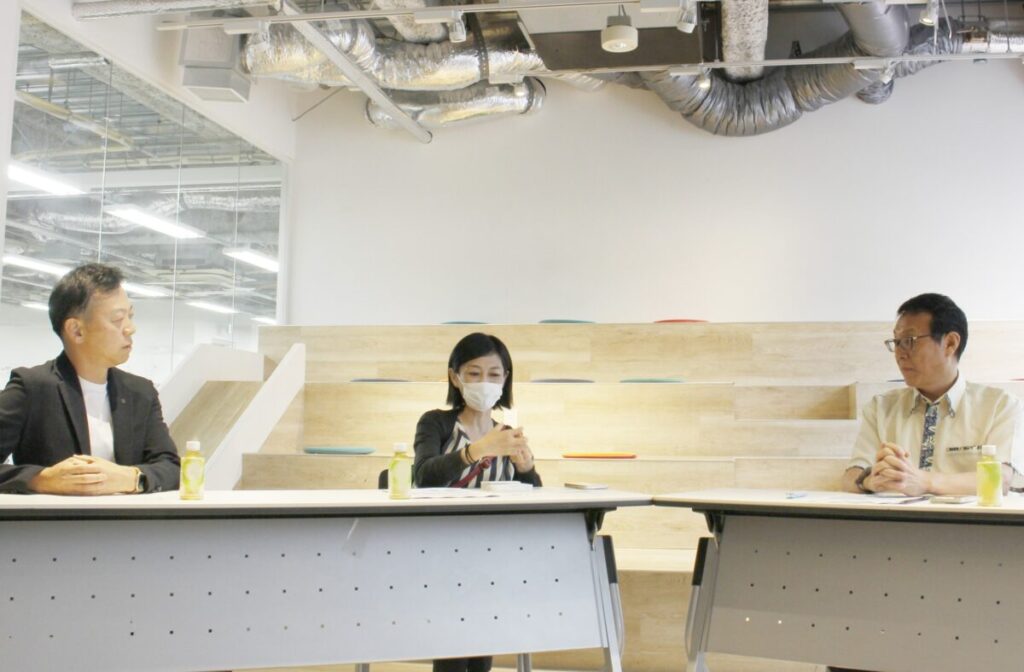
Toward sound development of children and resolution of educational issues
-Thank you very much. I realize that one of the challenges, "increasing access to the Internet environment," is on the one hand a method of solving problems, and on the other hand, it is important to use that environment as a place of connection where children can feel safe and secure.
As a service provider, how can we get involved to contribute?
Dr. Ozawa:
In fact, childhood experiences have been shown to influence later wellbeing.
For example, it has been found that the cumulative experience of abuse, bullying, and family discord, and the lack of a cushioning environment there, increases the risk of chronic illness in adulthood, as well as addictions.
At the same time, it has also been found that involvement in the community can soften the impact of the adversity experience, such as having a place where they can participate independently and enjoy themselves, children feeling that adults other than their caregivers took them seriously and accepted their feelings, school being a place where they can belong, having supportive friends, a protective environment, having someone to talk to, and being involved in culture, art, and sports. It has also been found that involvement in culture, the arts, and sports can help to lessen the impact of the adversity experience.
Mr. Ogami:
Recently, the number of non-subscribers to the PTA has been increasing, and the same thing is happening in the community associations.
I get the impression that many people think that "household matters can be completed at home."
As Dr. Ozawa mentioned, many families cut themselves off from relationships with the community, which must be cherished, and from being involved with various people.
Since this is happening not only in the metropolitan area, we believe that the causes of truancy are probably also more influenced by the family environment than by the school.
I thought that a system such as online health counseling could function as a horizontal link between the home and society at such times.
-The "online temple" is a place where people can connect to each other online to address the issues raised above. The "division of people involved in the care of children and a closed environment" and "regional disparities in medical care and education, which are supposed to be fair," which were mentioned earlier, will be made into a place of connection through online services.
How should we be aware of parents and other adults as an important part of the environment surrounding children?
Dr. Ozawa:
It would be great if we could increase the number of positive experiences in the various environments where children live.
From a "relational health" perspective, I feel it would be nice to see positive involvement re-established in the community.
In this sense, it may be a good idea to have an environment around them, including a digital environment, so that parents do not have to work too hard or continue to feel anxious alone.
Stream:
In Japan, female doctors have difficulty returning to the medical field due to childbirth and childcare. However, there are many doctors who are able to provide consultation and medical care online, even when they are away from home. I believe that the opportunities for such doctors to play an active role in the medical field will further expand through online services.
Mr. Ogami:
In order to solve the issues, it is still necessary to consider how we adults, as well as children, can study in the context of social education.
In other words, it is very important to maintain an environment that enables the child to grow as a human being and to educate him or her well as a parent. In fact, it was with this very thought in mind that I launched the Community Creation Support Group, of which I am now a member, and I wanted to back it up when I became an OBJECT of the PTA.
Stream:
I hope that through this initiative, with the cooperation of the community development support group, we can expand the health of parents and their children by providing a wide range of services to parents.
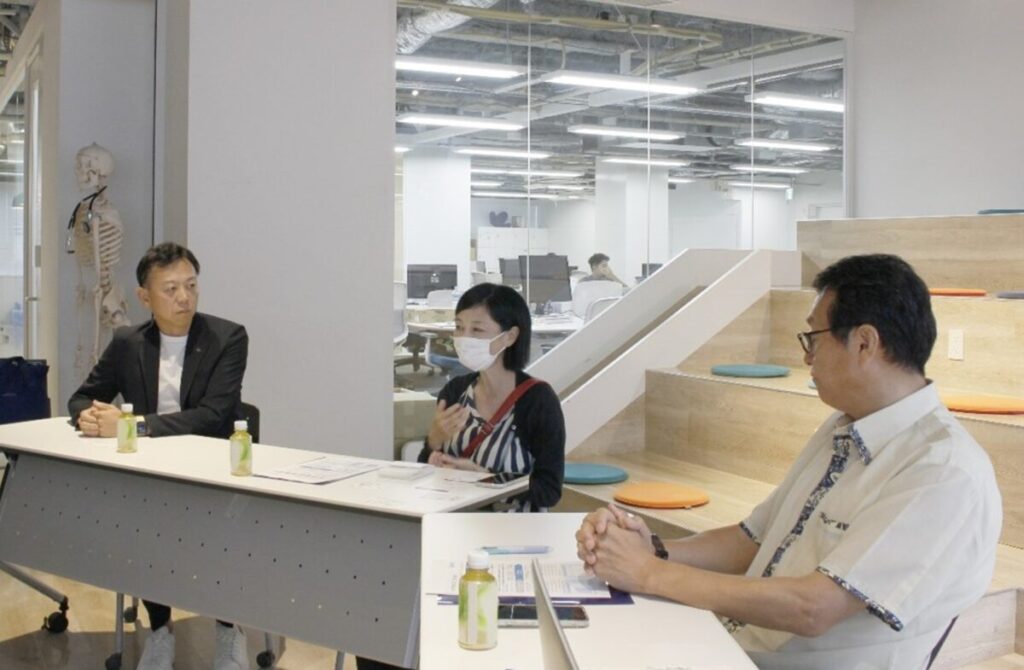
The Future of Healthcare and Education
-It is important to be aware of the wellbeing of parents in order to achieve healthy development of their children. That said, it is conceivable that connecting online with doctors who have gone through maternity or paternity leave could create a sense of empathy and affirmation on both sides.
What do you think is important in terms of connecting with more children and parents?
Mr. Ogami:
First of all, I believe it is important for the parents themselves to enjoy the program.
As the saying goes, "If parents don't enjoy themselves, their children can't enjoy themselves," and we are committed to this thought as we engage in a variety of activities.
Parents are engaged in activities to "improve the community" and "improve the school" in their own ways, and children naturally become interested in what their parents are doing when they see such adults.
I believe that our role as adults is to show the children scenes where they are really having fun so that they can be as interested as possible.
Stream:
You have seen a wide range of children, including your own children, and you have also seen many other children from all over the world!
Dr. Ozawa:
Yes, my child is 3 years old, so I try to spend as much time as possible with him, and as a result, my own sleep is being cut down (laughs). (Laughs) It is difficult to find a balance in how to secure time for myself. When you think about it, everything is connected, from how a company should work to how social security should be provided in the first place.
That is why it is also important to firmly "work with the system". And I hope that our efforts with the PTA this time will lead to the future of education and healthcare.
Stream:
In terms of online medical care and health counseling, while there are some good points, there are still a few cases where the system is not used properly and is perceived incorrectly, resulting in lost opportunities for use.
We feel that we must now work more carefully to ensure that people of all ages can receive services through medical care and health counseling.
To that end, we would like to continue to listen to your stories and work together to create a service that can help you.
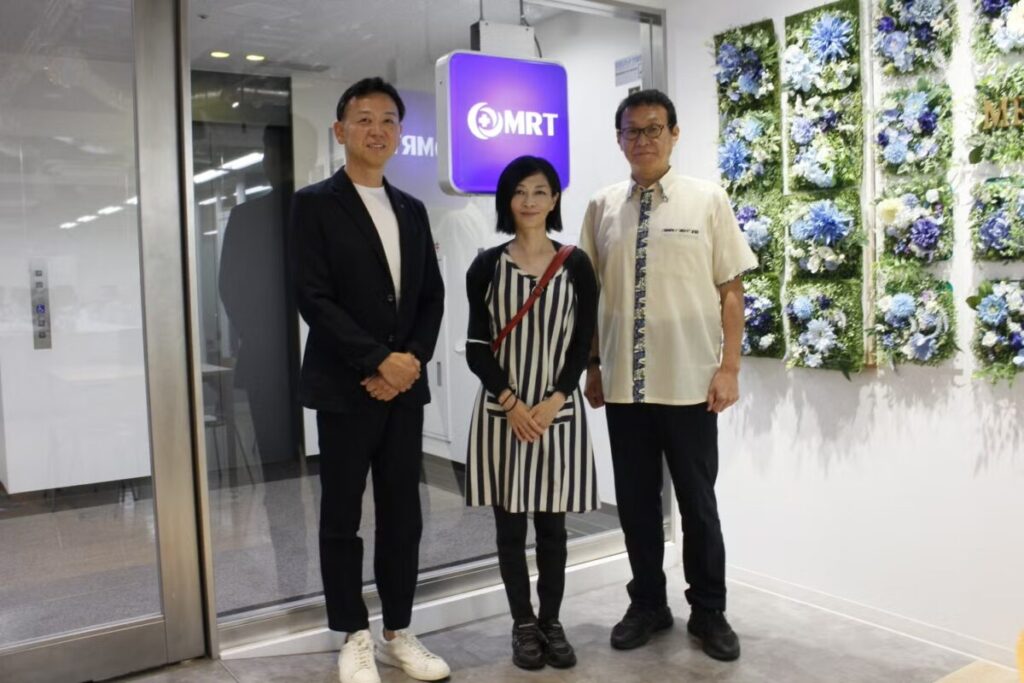
summary
This time, we had a discussion on the healthy development and growth of children from the perspectives of PTA and medical professionals. This was a valuable opportunity to realize that although education and medical care are different fields, they have many things in common, and through multifaceted cooperation and appropriate use of online and other tools, they can lead to solutions to issues and development.
We also reaffirmed that the mission of the COCOPiTA project is to realize a platform that complements "social education," a system that reduces the burden on parents and supports child-rearing by the community as a whole, valuing elements such as "empathy" and "affirmation.
With an eye on the health and wellbeing of not only children, but also their parents and other adults, the mutual cooperation of Community Creation Support Group, OneListed, ARIA, and MRT will work toward the digitalization of PTA activities and the expansion and further development of medical and health support services.
About each company
■General Incorporated Association for Regional Development
https://chiikisosei-oendan.com
TEL: 03-5829-4483
Email:contact@chiikisosei-oendan.com
■OneLyRested, Inc.
https://onelilisted.com/
tel: 03-4400-9263
Email: info@onelilisted.com
■ARIA Corporation
https://www.ariainc.jp
TEL: 03-6447-1162
Email: info@ariainc.jp
■MRT Corporation (Door. Secretariat)
https://medoor.com/webmed
TEL: 03-6696-1110
Email: info@medoor.com

